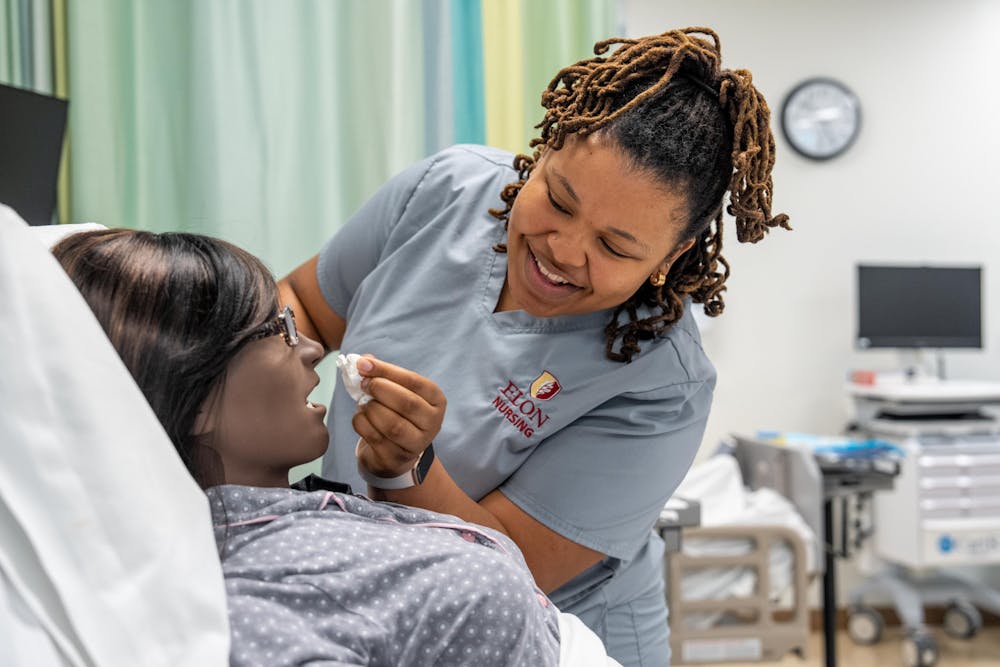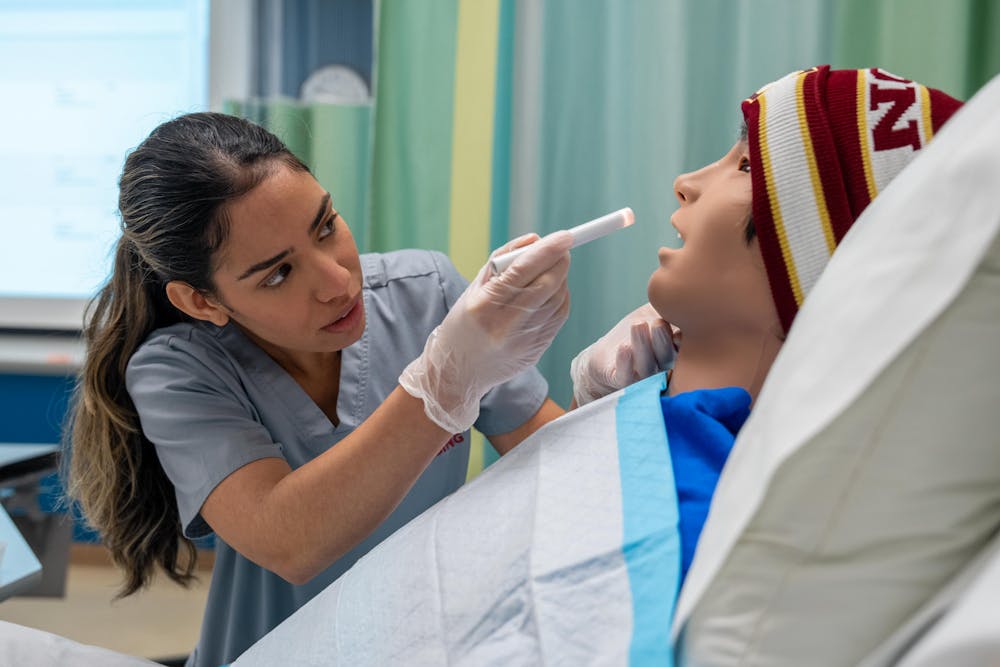Chair of Elon University’s Nursing Department,Tiffany Morris, said she hopes students, both in and outside of nursing, will listen to their hearts a little more in February in honor of American Heart Month.
In Elon’s Nursing Program, students train to become the next generation of nurses who take care of individuals with cardiovascular conditions, according to Morris.
The human heart beats 60 to 100 times per minute, according to the Mayo Clinic. However, when stressed, it can start beating up to 200 times per minute. At the heart of it all, this organ plays a predominant role in a person’s health.
According to Morris, stress can predispose people to cancer, due to how much oxygen it can take to build your energy levels. She also noted that stress can cause you to gain weight, adding more work for your heart to push fluid throughout the body.
Senior Hyland Alfonso is in the Accelerated Bachelors of Nursing program and is learning about cardiovascular conditions, such as risks for heart attack. She said learning about these things while in college is important because it’s misunderstood.
“It’s a better opportunity to learn about your heart health and take better care of yourself. People don’t know how easy it is to take care of their heart,” Alfonso said. “They can eat better, do regular exercises and make better food decisions.”
While nursing students are learning heart healthy habits in college, Morris said everyone needs to be aware of how important your heart is when you are in college.
Spokesperson for the American Heart Association Sarah Fedele agrees, adding that knowing the risk factors of a heart attack and stroke are an important component. Risk factors include smoking, vaping, lack of sleep and poor nutrition.
“The biggest thing you can do is to know that you can make changes to help prevent heart disease and stroke in your life. The other part is to really know what the warning signs are for a heart attack,” Fedele said. “That's another big piece that we are trying to do. The thing to know is that it's not always a classic sign. It's not always an elephant on the chest or like pain in the left arm or numbness in the left arm. It can be nausea, it can be shortness of breath, it can be jaw pain — knowing the warning signs is very critical.”
Fedele said cardiovascular diseases are affecting younger age groups. This month, they are conducting a Be the Beat campaign, encouraging people to learn Hands-Only CPR. This form of CPR is calling 911 when you see someone collapse and then pushing hard on the center of the chest.

According to the Centers for Disease Control and Prevention, about 350,000 cardiac arrests occur outside of the home. In 2016, a 22 year old Elon student died in his apartment after suffering from cardiac arrest. In the spring, a group of students also started a Health E Start study, which focuses on how lifestyle changes starting in college affect heart health.
The American Heart Association reports 44% of women age 20 and above are living with some form of cardiovascular disease. The association also reported a female student who suffered a stroke on the same day as her college graduation.
With that, Morris said students need to keep in mind that heart disease no longer just affects older adults.
“Any of us that suffer from sustained stress, worry, anxiety causes us to have blood pressure problems early, which also can affect your kidneys. I know young people that have suffered from that,” Morris said. I would say don't take that for granted, your age for granted. I think you're better prepared to exercise and do the right thing, but you have to do it.”


